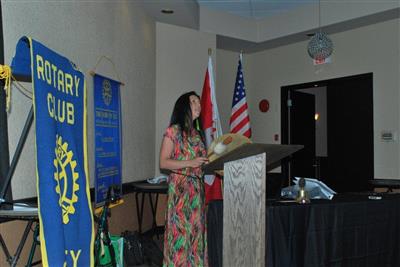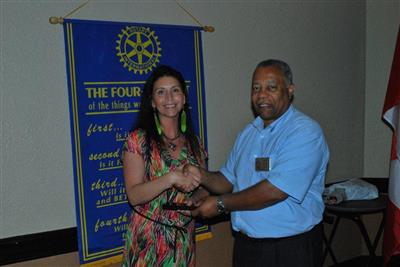DECISION MAKING in THE FIRST NATIONS COMMUNITY-
Tamarra Goddard enlightened the club about the role culture and tradition play in decision-making in the First Nations community. She gave an example of how her current area of studies in aboriginal Business and Leadership stems from the example that was set by her mother who teaches aboriginal law at the University of Victoria.
She gave an example of the role prayer plays in business meetings. She started with a traditional prayer of drumming and singing which is a prayer itself. The medium of prayer allowed people to arrive at a state of calmness in an effort to clear the mind of any preconceived ideas that would interfere with unbiased decision-making and consensus.
Tamarra explained that in her community, knowledge is passed through dreams, practices and traditions. These practices and traditions are re-emerging through the young people and is a validation to the elders that the traditions are being passed on; some of these traditions and practices go back five to six thousand years. She gave the example of the complexity and time it took to be a traditional medicine person. It took 14 years of study which included the biology of plants and animals.
She briefly spoke about the adverse effect the Indian Agent had on First Nations communities. Her people were removed and prevented from the traditional connection with the land. She discussed the land treaties that were settled by former Premier Gordon Campbell.
Tamarra concluded her talk by reminding Rotarians that the Canadian common law system which is adversarial in practice does not work in first nations people who prefer to settle disputes and make decisions through inspiration and consensus. “Quietness fosters original thinking” Tamarra said. She finished by saying that she hopes that the work she is doing would result in building a wealthy economy for her First Nations people.
Photos: Tamarra demonstrating the traditional prayer and drumming.
President John Edwards Presenting a token of the clubs appreciation for her presentation.
\
